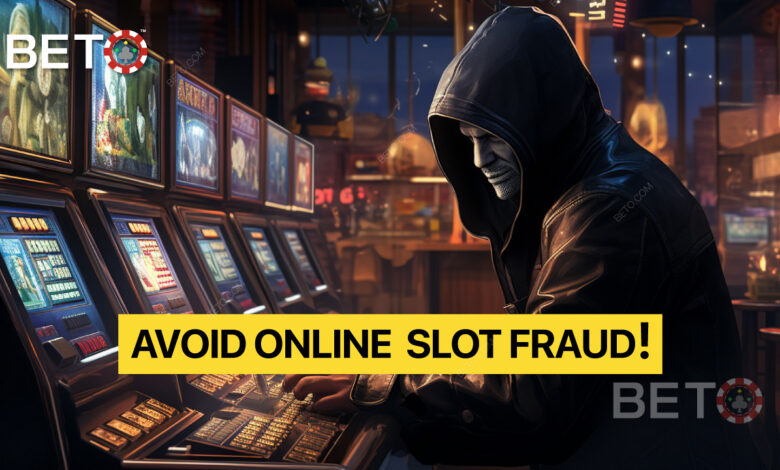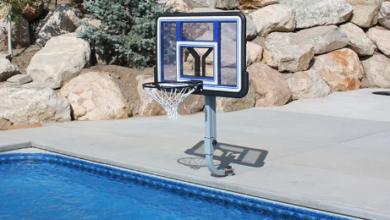How to Spot Rigged Slot RTP Tinggi: Red Flags to Avoid

Slot machines have become a staple of entertainment in both physical and online casinos. They’re colorful, engaging, and promise the thrill of potentially massive wins. One of the factors that players often use to choose which slot to play is its RTP or Return to Player percentage. This figure indicates how much of the total wagered money a slot is designed to return to players over time. A slot with an “RTP tinggi” (high RTP) is theoretically more rewarding than one with a lower RTP, making it a popular choice among savvy gamblers. However, not all high RTP slots are as legitimate as they appear, and rigged or manipulated games can lead to significant losses.
To avoid falling victim to unfair practices, it’s important to understand the common red flags associated with rigged slot RTP tinggi. This article provides actionable insights to help you spot these fraudulent setups and play responsibly.
1. Unlicensed Casinos or Platforms
The first and most obvious red flag is the absence of a valid license. Legitimate online casinos operate under licenses issued by regulatory bodies such as the Malta Gaming Authority (MGA), the UK Gambling Commission (UKGC), or the Curacao eGaming Authority. These organizations enforce strict rules to ensure fairness and transparency in gambling operations.
If a platform claims to host slots with RTP tinggi but does not display any licensing information, it’s a clear sign that something is amiss. Licenses aren’t just for show; they demonstrate that the casino complies with industry standards and undergoes regular audits to ensure fair play.
Always check the casino’s licensing details, typically slot rtp tinggi found at the bottom of its homepage. If the information is missing or unverifiable, steer clear.
2. Unrealistically High RTP Claims
While high RTP slots are appealing, overly ambitious claims should immediately raise suspicion. Most reputable slot machines have RTP percentages ranging from 92% to 98%. If a game advertises an RTP above 99.9% or guarantees massive payouts, it’s likely too good to be true.
Dishonest platforms use inflated RTP numbers to lure unsuspecting players into depositing money. However, the actual payout mechanism is often manipulated to favor the house significantly, making it impossible for players to win fairly.
To avoid this trap, research the slot developer and cross-check their RTP claims with trusted review sites. Reliable software providers like NetEnt, Microgaming, and Play’n GO publish accurate RTP data, and their games are widely vetted by players.
3. Lack of Independent Game Testing
Legitimate slot games are tested and certified by independent third-party agencies like eCOGRA, iTech Labs, or GLI (Gaming Laboratories International). These organizations conduct rigorous checks to ensure that the games’ random number generators (RNGs) are functioning properly and delivering fair results.
If a slot lacks certification or there’s no mention of testing agencies in the casino’s information section, the game could be rigged. Without independent verification, there’s no guarantee that the RTP percentage is accurate or that the slot isn’t programmed to exploit players.
4. No Transparency on RTP Adjustments
One of the more subtle red flags is a lack of transparency regarding RTP adjustments. Many reputable slot developers allow casinos to offer the same game with slightly different RTP settings, typically ranging from 88% to 98%. However, trustworthy platforms clearly disclose these variations in the game details.
If a casino does not provide information about RTP ranges or hides this data, it might be an indication that the game is configured to the lowest possible RTP setting. Always read the fine print and choose platforms that prioritize transparency.
5. Limited or Nonexistent Customer Support
A lack of responsive customer support is another warning sign of a potentially rigged platform. Legitimate casinos offer multiple communication channels, including live chat, email, and phone support, to address player concerns.
If you encounter a problem—such as unusual slot behavior or a discrepancy in payouts—and the casino’s support team is unresponsive or dismissive, it’s a major red flag. Rigged platforms often avoid addressing complaints, leaving players stranded and frustrated.
6. Unreliable Payment Systems
The way a casino handles deposits and withdrawals can also reveal its credibility. If a platform offers limited payment options, delays payouts excessively, or charges hidden fees, it may not be trustworthy.
In some cases, rigged casinos lure players in with generous bonuses but make it nearly impossible to withdraw winnings due to unreasonable wagering requirements. Always review the payment terms before depositing money, and avoid casinos with shady practices.
7. Overwhelmingly Positive but Dubious Reviews
In today’s digital age, it’s common for fraudulent platforms to flood the internet with fake reviews to build credibility. If a casino or slot game has overwhelmingly positive feedback but little to no critical analysis, it’s worth investigating further.
Look for reviews from established gambling forums, professional reviewers, and experienced players. Authentic feedback often highlights both the pros and cons of a platform, whereas fake reviews tend to be overly enthusiastic and vague.
8. Unfamiliar or Untrusted Software Providers
A final yet crucial red flag is the use of unfamiliar or untrusted software providers. Established names in the industry, like Pragmatic Play, Betsoft, and Yggdrasil, have a proven track record of delivering fair and enjoyable games.
If a casino features slots from unknown developers with no online presence or history, proceed with caution. These games may be designed to mimic legitimate titles while secretly reducing players’ chances of winning.
Conclusion
Playing slot RTP tinggi can be an enjoyable and potentially rewarding experience, but only if you choose your games and platforms wisely. Rigged slots and fraudulent casinos prey on players’ trust and can lead to significant financial losses.
By paying attention to the red flags mentioned above—such as unlicensed platforms, inflated RTP claims, lack of transparency, and unreliable payment systems—you can protect yourself from scams and focus on enjoying a fair gaming experience. Always do your research, play responsibly, and remember: if something seems too good to be true, it probably is.




